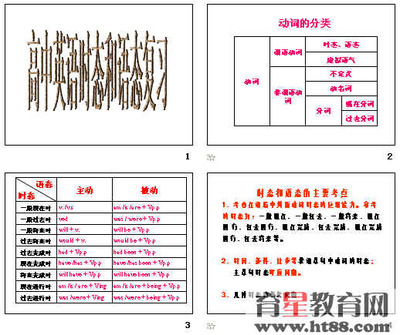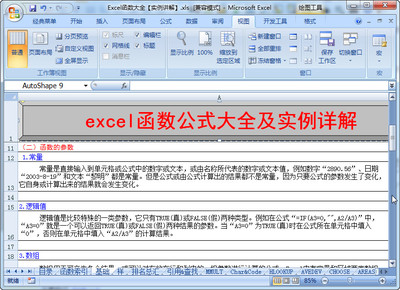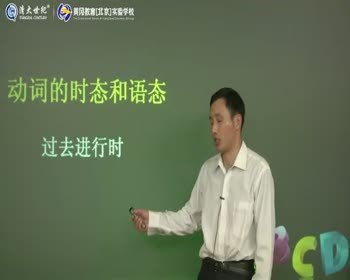完成时
英语时态可以分成两组:一般时(包括一般过去、一般现在、一般将来)和非一般时(包括完成时和进行时)。这两组时态的最大区别在于:前者是对事件的时间进行客观描述的,而后者不仅客观描述时间,更表达说话者的感情。如果能理解这一点,很多语法题目都可以得到合理的解释。
1、表示从过去继续到现在的动作或是状态,强调动作的延续性——继续
2、表示过去某时刻曾做过的动作——经验
3、表示在现在刚完成的动作——完成
4、表示过去的动作对现在的影响。——结果
继续:1:I began to study English 3 years ago.(只表示3年前学过,和现在没有关系)
+ 2.I still studyEnglish now.
= I have studied English since 3 yearsago.(表示3年前学,现在仍在学)
表示继续的动词:have beentohaveknownhavelivedhavestayedhavestudiedhavetaughthaveusedhave wantedtohaveworked
常用时间状语:all this week; always; for +段时间;howlong;lately;recently;often;since;so far;up tonow;in the last fewyears总规律:时间状语的特点是非具体时间,是段时间
注意的几点:
1Howlong+一般过去时/完成时:How long have you studied English?(到目前为止学了多久)
Howlong did you study English lastyear?(去年学了多久)
对比:when的疑问句不用完成时,因为when提问的是具体时间。
Whendid you leave?When have youleft?X
2since+句子(过去时):we have known each other sincewe were children.
(10重庆)The book has been translated into thirty languages since it ___ onthe market in 1973.
A. hadcomeB. hascomeC.cameD. comes
3for可以和一般过去时和完成时连用,区别在于1、时间标志是否为具体时间2、和现在情况有没有联系。
I have lived here for 4 years.
I studied English for 4 years in 1960’s. in1960’s是具体时间
She often stays in Beijing for 3monthseveryyear.Everyyear是具体时间所以谓语动词不用完成时
(11北京)Bob has gone to California.
--oh,can you tell me when he __?
A. hasleftB.leftC. isleavingD. wouldleaving
(08天津)He____ football regularly for many yearswhenhe was young. When引导的状语从句表示的是具体时间一般用进行时,一般时,不用完成时
A . wasplayingB.playedC. hasplayedD. had played
4注意过去时和完成时的区别:
---I’ve got to go now. ---Mustyou?I ____you could stay for dinner with us.
A.thinkB.thoughtC. havethoughtD. amthinking
经验:Helen read this novelmany times three years ago.(过去读过这本书,现在不一定记得)
+now Helen knows this novel.
= Helen has read the novel 3times. (读过书并且现在记得)
常用时间状语:before;often;manytimes;ever;never;once;twice:
We have often read Beijing daily.
Have you ever seen UFO?
The boy has never finished reading this book since I taughthim.
对时间状语标志不可机械记忆,要根据语境判断:
对比:——Itseems that I know him, I am sure thatI haveseen him before.
——Hewas my classmate, but I didn’t know him before.
(04北京)——-____ leave atthe end of this month.
——I don’t think youshould do that until ___ another job.
A. I’m going toyou’dfoundB. I’mgoing toyou’vefound
C. I’llyou’llfindD.I’llyou’d find
完成、结果:
完成:I have just finished myhomework.
常用时间状语:just;already——yet(否定,疑问)
结果:I opened the door + thedoor is open now.=I haveopened the door.
Johnjoined the army. + John is now asoldier.=Johnhas joined the army.

注意:表示结果的完成时一般不连接时间状语。一般使用短暂性动词
比如:Johnhas joined the armyfor 3 years.X
可以改成:John has served the army for 3years.(继续)
对几个状语的讨论:
1、Justnow和just:we had an Englishlesson justnow.We havejust had an English lesson.
2、Today; this morning; thisafternoon等:根据语境确定:
He hasn’t finished his work yet, because He did not do hishomework this morning. (说这句话的时间不是thismorning了,注意一般时所透露的客观描述性)
Don’t waste your time, you haven’t done your homework thismorning.(说这句话的时间还是thismorning,注意完成时所透露的感情色彩)
例:He __ here a little bitlate today, because he woke up late and missed the bus.
A.arrivesB.arrivedC. hasarrivedD. hadarrived
3、注意地点状语对时态的影响:
Ibought this watch in shanghai.(我现在不在上海,所以是对过去事实的描述,用过去时)
Ihave bought this watch in shanghai.X(错,从语义分析我现在不在上海,所以不能用完成时)
特别用法:It is the first timethat sb have done sth
It has been +段时间+since =It is+段时间+since
It has been 5 years since I smoked.
___.A.oh, why not give it up.B.that’s a wise decisionC. I feelpity forthatD. itdoesn’t matter
二:过去完成时
1、过去完成时用在整个语境是过去时的环境中,表示动作发生在过去的过去。要仔细分辨句中几个动词发生的前后顺序。
Why were you late for class this morning?
Ihad been stuck in heavy traffic.
When I got out this morning, the bus had left.
(11山东) she was surprised tofind the fridge empty, the child __ everything.
A. had beeneatingB. hadeatenC. haveeatenD. have beeneating.
(11福建) last month, theJapanese government expressed their thanks for the aid they __ fromchina.
A.receiveB. arereceivingC. havereceivedD. hadreceived
(12重庆) Kevin, you lookworried. Anything wrong?
Well,I _ a test and I’m waiting for the result.
A. willtakeB.tookC. hadtakenD. take
(12北京) George said that hewould come to school to see me the next day, but he __.
A.wouldn’tB.didn’tC.hasn’tD. hadn’t
He __ in the factory for three years before he joined thearmy.
A. has workedB.worksC. hadworkedD. will work
2、过去完成时用在虚拟语气中,另外解释。
三:将来完成时
表示从过去或现在开始到将来某时间点为止的一段时间内一个动作将完成
时间状语:线时间
Eg:I will go to Xinhuabook store to buy moyan’s book.
You had better go now, orthey will have sold out then.
After the class,I am sure all of youwill have been able to master this grammar.
(2012上海) I hear that Jason isplanning to buy a car.
Iknow. By next morning, he __ enough for a used one.
A. will havesavedB. willbe savingC. hassavedD. saves
On the same day next month, Jonny __ for tenyears.
A. getmarriedB. ismarriedC. will bemarriedD. will have beenmarried
请仔细分析以上句子中的时间状语
四:完成进行时
如果从语境中分析中,在说话时该动作已经进行了一段时间并且仍然在进行中,就用完成进行时,当整个语境是过去时,用过去完成时。
注意:完成进行时中的进行时带有主观感情因素,这是分辨完成时和完成进行时的重要标志。
You look muchslenderer.I have been runningto lose weight.
She has been learning English for 6 years, but she stillmixes b up with d.
(10辽宁) Joseph ___ to eveningclasses since last month, but he still can’t say “what’s yourname?” in Russian.
A has beengoingB.wentC.goesD. has gone
(11全国) when Alice came to,she did not know how long she __ there.
A. had beenlyingB. has beenlyingC. waslyingD. has lain
练习:
1.―Look somebody __ thesofa.
―Well, it wasn’t me. I didn’t do it.
Ais cleaning B was cleaning C has cleaned D. had cleaned
the manager has been tellingthe works how to improve the program since 9am.
A, hastoldB. istellingC. has beentellingD. will havetold
Tom_______ in the libraryevery night over the last three months.
A.worksB.workedC. has beenworkingD. had beenworking
When I got on bus , I __ Ihad left my wallet at home.
AwasBworkedC has beenworkingD. had beenworking
----I didn’t ask for the name list, why __ on mydesk?
----I put it there just now in case you neededit.
A. does it landb. hasit landed c. will it landd. hadit landed
注意思考,这题为什么A不对。提示:完成时所带有的感情色彩和一般时带有的客观描述性
His first novel __ good reviews since it came out lastmonth.
AreceivesB. isreceivingC. willreceiveD. hasreceived
In 1942, Columbus __ on one of the Bahama islands, but hemistook it for an island of India.
A.lands,B.landedC. haslandedD. had landed
 爱华网
爱华网



